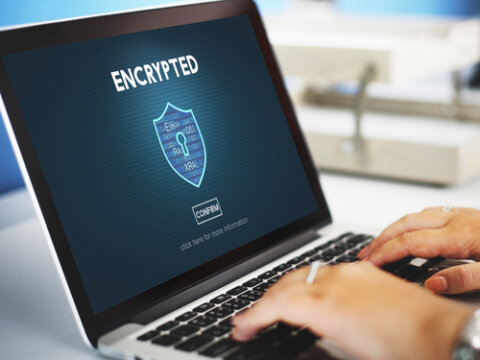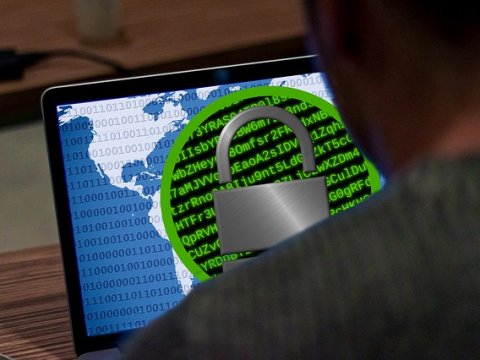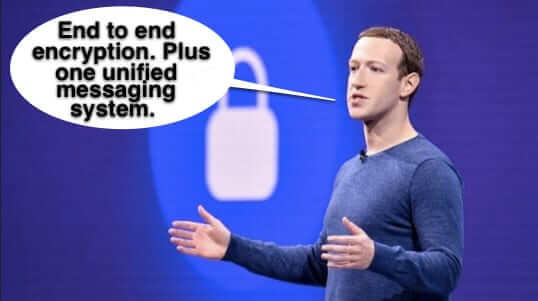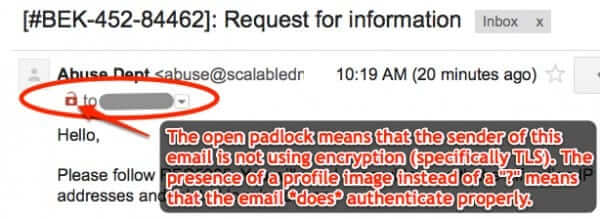Tag: encryption
Encryption: Why It Matters to You, Even If You Think You Have ‘Nothing to Hide
Have you ever wondered how your sensitive information stays secure when you’re shopping online or sending a private email? The answer lies in something called encryption, a complex system of coding that disguises your data to keep it safe from prying eyes. Some might argue, “I have nothing to hide. Why should I care about encryption?” Well, the truth is, encryption is critical for everyone, and here’s why.
The Cognizant Breach: What You Should Know About Maze Ransomware Attacks
Cognizant, an American company providing IT services based in Teaneck, New Jersey, is one of the latest victims of the infamous Maze ransomware. The IT services provider operating in more than 37 countries, with a turnover of $16bn, said the attack took place on Friday, April 17th. According to the…
Mark Zuckerberg Announces that Facebook Will Now Be All About Privacy and Unified Messaging Across WhatsApp, Instagram, and Facebook Messenger
In 2010 Mark Zuckerberg (in)famously announced that “Privacy was no longer the social norm.” That was when Facebook reset (relaxed) the privacy settings for all of their users. So the Internet sat up and took notice when yesterday Mark Zuckerberg said “I believe we should be working towards a world where people can speak privately and live freely knowing that their information will only be seen by who they want to see it.”
What Gmails TLS Red Padlock Means – It Doesn’t Mean Something Bad!
If you have started seeing a little red padlock in your Gmail email, don’t freak out, even if the red padlock is open. All that it means is that the sender didn’t use transport layer security (TLS) when sending it – in other words, it simply means that the email was not encrypted when it was sent.
FBI, Feds Want to be Able to Decrypt Your Encrypted Email and Messages
Both the Federal Senate Judiciary Committee and the Senate Intelligence Committee heard today from FBI Director James Comey, and from Deputy Attorney General Sally Quillian Yates, that they need a backdoor (or a “front door”, as Comey calls it) that allows them to decrypt encrypted email and messages in order to fight terrorism.
ProtonMail Offers Truly Encrypted Email
Want a truly encrypted email program? If you are among those who worry about nosy agencies and others reading their email, you will appreciate Proton Mail, “End-to-end encrypted email, based in Switzerland.”
Federal Court Judge in Password Lawsuit Ruling: You Can Be Ordered to Decrypt Your Hard Drive
A Federal court ruling this week by Judge Robert Blackburn, of Peyton, Colorado, says that you can be ordered by the court to provide the password to decrypt encrypted data, or face contempt of court, and that being forced to reveal your passphrase does not violate the Fifth Amendment (the 5th Amendent includes, among other things, the right against self-incrimination). In the ruling, Judge Blackburn ordered Ramona Fricosu, whose laptop hard drive is encrypted with PGP, and who is charged with taking part in a mortgage scam, including charges of wire fraud, bank fraud, and money laundering, to decrypt her hard drive or face, among other sanctions, contempt of court.
Feds Seek Broad Ability to Monitor All Internet Communications
According to government officials and insiders, the Federal government is seeking broad authority and discretion to monitor all Internet communications, including communications on social networking sites such as Facebook and Twitter, instant messaging systems, and even (or hey, perhaps especially) encrypted emails.
Criminal Defendant Ordered to Decrypt Own Hard Drive
If Sebastian Boucher thought that encryping the data on his hard drive would protect him from prying eyes, he may have been right. But if the Derry, New Hampshire resident, who is originally from Canada, thought that it would protect his 5th Amendment right against self incrimination, he may have another think coming.
Nevada Businesses MUST Encrypt Email Starting Next Week Under Law
Under a law which takes effect next week, Nevada businesses must start encrypting their email, or face a penalty.









